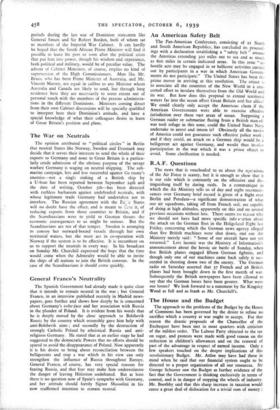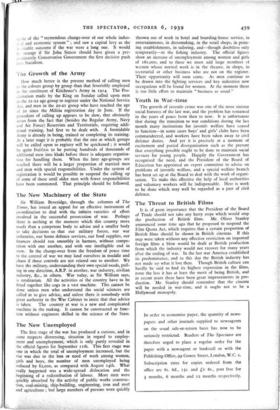The House and the Budget
The approach to the problems of the Budget by the House of Commons has been governed by the desire to refuse no sacrifice which a country at war ought to accept. For that reason the drastic proposals of the Chancellor of the Exchequer have been met in most quarters with criticism of the mildest order. The Labour Party objected to the tax on sugar, and protests were made with good reason on the reduction in children's allowances and on the removal of part of the advantage in respect of earned income. Only a few speakers touched on the deeper implications of this revolutionary Budget. Mr. Attlee may have had these in mind when he said that our financial system ought to be directed to a proper organisation of all our resources. Sir George Schuster saw the Budget as further evidence of the fact that the Government is thinking exclusively in terms of control, and is in danger of stopping the wheels of industry. Mr. Boothby said that this sharp increase in taxation would cause a great deal of dislocation for a trivial sum of money ; spoke of the " tremendous change-over of our whole indus- ir. al and economic system" ; and saw a capital levy as the in.:vitable outcome if the war were a long one. It would strange if Sir John Simon should have given a pre- d,minantly Conservative Government the first decisive push into Socialism.



































 Previous page
Previous page